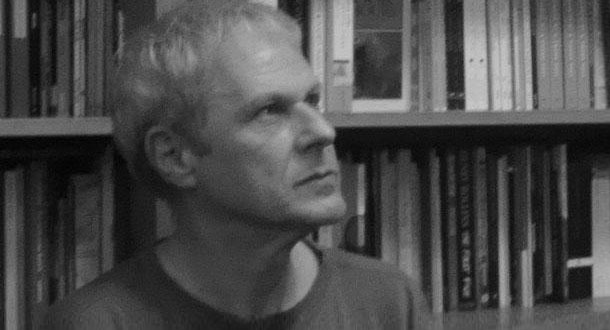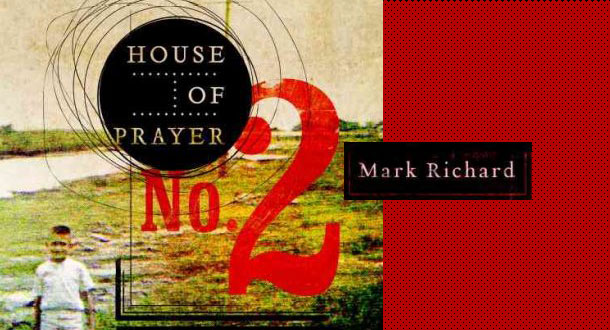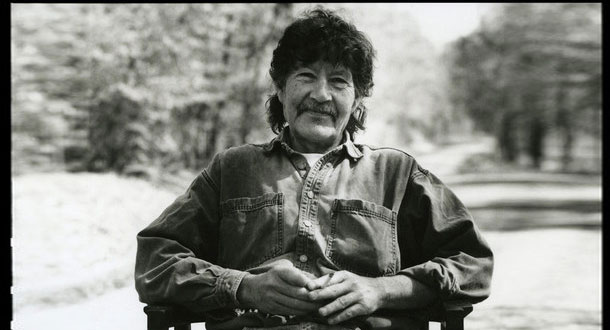Jeffery Hess’ Tushhog, a follow-up to his 2016 debut novel Beachhead, hits shelves today and is, as expected, all dive bars and attitude, all sweat and blood and sand. Tushhog continues the adventures of Scotland Ross, a Navy-prison parolee making his way on the West Coast of Florida in the 1980s and trying, without much success, to keep his head down, his nose clean and have a shot at maybe just a little bit of happiness in a life otherwise filled with hard knocks. Throw in a tango with a Cuban gang and a wild, redneck crew and things aren’t looking too good for Scotland Ross’ chances.
Let's just start with a question you're probably going to be answering a lot in the near future—what is a "tushhog" and what bearing does its meaning have on the novel?
I’ve been answering that question a lot already and I’m glad it makes people curious. It’s an unusual word and a great way for people to start talking about the book. In a perfect world, everybody would read the book to see the definition in action, but since we’re all accustomed to immediate answers, I don’t mind saying that tushhog is a Southern word referring to someone who finishes fights or steals from thieves. I discovered the word in a couple of Daniel Woodrell novels. I’ve seen it as “tush hog” and “tushhogged,” which was the original title before we shortened it. But since the definition is what the book is about—everyone trying to take somebody else’s ill-gotten gains and/or exerting physical dominance over others—I just had to use it. Titles are usually difficult for me to come up with, but this one was a gift—with all gratitude to Mr. Woodrell.
Tushhog is the sequel to your 2016 novel Beachhead, and takes place a year after, in 1981. Both follow the escapades of Navy-prison parolee Scotland Ross as he, quite unsuccessfully, tries to walk the straight and narrow. For those readers who haven't yet picked up Beachhead, what can you tell us about Ross? Is he the kind of guy you'd want to buy a drink or run like hell from?
Scotland Ross is exactly the kind of guy I’d like to have a beer with, but getting him to talk might be a trick. He cuts an imposing figure, first of all, and second of all, he’s kind of reserved—even when he’s had a few too many. He’s not the guy who would tell you his life story when you ask him to pass you a bev nap. Rather, he’s the kind of guy who would tell a big talker to take a break. Scotland is also the guy who wouldn’t lie to you if you asked him a question, but he’d never volunteer more information than was asked. And if he liked you, he’d likely risk his life to save yours. I created him out of memories I have of the Florida crackers and Ohio transplants I saw on construction sites, in bowling alleys, and at auto body shops while growing up in Florida in the 1970s and ‘80s. Early on, I saw him as a tough guy with the tools and wherewithal to face anything life threw at him. When we meet him, he’s already survived a rough upbringing and a tremendous loss as an adult that reshaped his life, but he considers himself lucky. His size, looks, and attitude have made the first twenty-eight years of his life rewarding in many ways, but those attributes have also brought trouble.

Tushhog takes place in Fort Myers and both Scotland Ross novels are dripping with Florida salt and sweat. How important do you think the Florida setting is to Ross' story? Do you think the novels would have the same flavor and flair if they were set somewhere else?
Thanks for that compliment! I love writing about Florida, the natural—the palms, the heat, the rain, and humidity. Maybe because I write outside, I feel more connected to it. I don’t know. But I also like to write about the artificial—the concrete, the cars, and the dishonesty. Maybe because I write at night, it’s conducive to wandering the darker terrains of both categories. As for Scotland’s presence here, he and his sister are originally from Ohio. Over the course of both books, Scotland has only met two people born and raised in Florida. This was common in the 1970s and ‘80s when the population of the state was half what it is today. No one seemed to care where people came from so he never felt out of place for that reason. And all the elbow room in the state back then made it easier to move around and to keep secrets. Much of the trouble he encounters directly involves Florida’s wet topography. I can’t imagine the story taking place anywhere else than where I’ve lived all but the first four years of my life—not counting the time away during my Navy enlistment.
You and I have talked about this before, but Tushhog definitely turns up the dial with respect to the trials Ross is up against and the intensity of the narrative. How much of this came from a conscious decision to ramp things up and how much was simply the progression of the story and the continuing development of the character?
I wish I could take credit for masterminding the story’s trajectory, but the truth is that I discovered everything along the way. I’m often asked if I outline my novels in advance or if I write by the seat of my pants. My answer is a combination of the two, but not the way most people would think. I tend to be scene-oriented. I write scenes first—technically I write notes for scenes—but then I write a scene and see where it goes. Then I write another that builds upon the previous scene. I continue the process, but I also make a list of those scenes and analyze the list to see where I am, where I’m going, and where I could add or subtract. It’s far from the most efficient process. And the more I know Scotland Ross, the more intense he seems to me.
One of things I love about both Beachhead and Tushhog is your classic noir style. The prose is lean, sharp and punchy and the writer I've most often compared you to is Elmore Leonard. Can you pinpoint any specific noir novels or writers who have been an influence on your writing?
I could give you a list of hundreds. I’ve long been seriously inspired by James M. Cain, Jim Thompson, Elmore Leonard, Richard Stark/Donald Westlake, Daniel Woodrell, and though I’ve been compared to him, I’ve only recently started reading John D. MacDonald—but not his Travis McGee series, for fear of being too similar. Current writers that I love and that fuel not just the sense of noir, but the total sense of place in my writing, include yourself, chief among them, but also Richard Lange, Frank Bill, Eric Beetner, Donald Ray Pollack, Larry Brown, and Daniel Woodrell, again, because he’s been a touchstone for me. And along the way, I’ve been lucky to learn from some great teachers (who are also phenomenal writers) like Fred Leebron and Pinckney Benedict. Their stamp is on everything I write and teach others.
Although Tushhog is just now arriving on the scene, I've heard whispers of a third Scotland Ross novel in the works. Is this series set to be a trilogy or is the storyline more open ended? And will Ross ever, maybe even just once, be able to catch a break?
My wife is my very first reader and she has asked the same question more than a few times. I don’t know the answer. I once heard a line of advice to get your characters up a tree and then throw rocks at them. That sort of happens a lot in these books, but Scotland always gets himself up those trees. And back when I was writing the first draft of Beachhead, I originally envisioned this as a trilogy. That’s what I’m thinking now, but I’ve been around long enough to know that plans are subject to change. No matter what, after I finish the third Scotland Ross book, which I’m knee-deep into now, I’m going to finish up a standalone novel that grew out of one of the stories in my collection, Cold War Canoe Club, which also features a Scotland Ross prequel story from his Navy days.

About the author
Steph Post is the author of the novels Lightwood and A Tree Born Crooked and her short fiction has most recently appeared in Haunted Waters: From the Depths, Nonbinary Review and the anthology Stephen King’s Contemporary Classics. She has been nominated for a Pushcart Prize, a Rhysling Award and was a semi-finalist for The Big Moose Prize. She is currently the writing coach at Howard W. Blake High School in Tampa, Florida.

.jpg)




